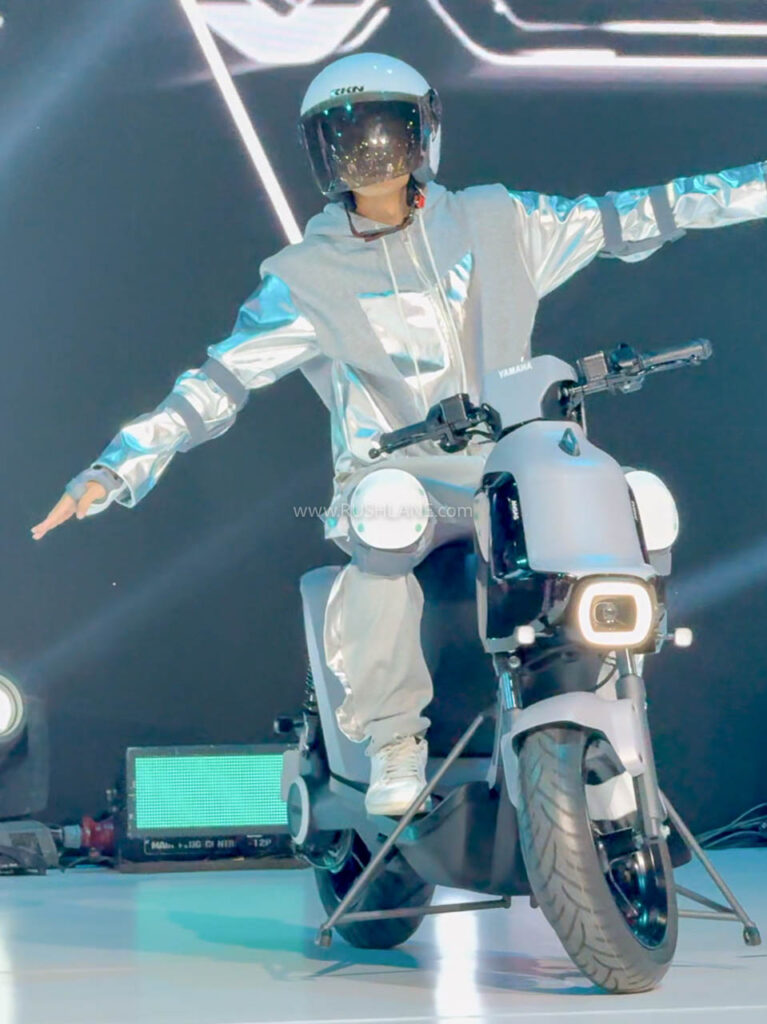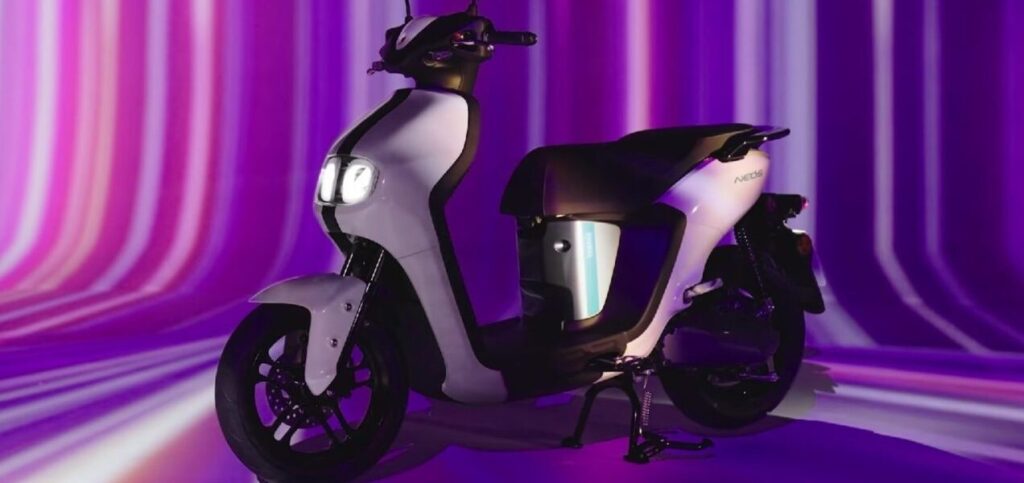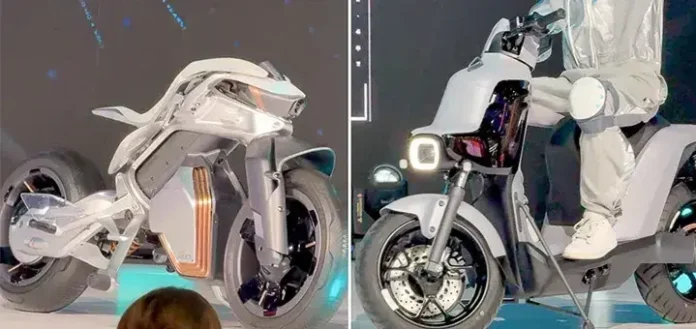The two-wheeler sector in India is about to undergo a huge change, thanks to Yamaha. Yamaha intends to take its key competencies of style, performance, and speed and combine them into a product that will revolutionize urban commuting with an innovative and potent electric scooter. This calculated move establishes Yamaha as a vital center in the company’s international operations while also demonstrating Yamaha’s dedication to innovation. Let’s examine Yamaha’s goals, the difficulties they encounter, and the implications for India’s mobility landscape in the future.

Yamaha’s Electric Vision: A Special Method for Creating a Marked Electric Scooter
Yamaha has taken a cautious and innovative strategy to joining the Indian electric vehicle (EV) industry. Rather of making a lot of quick electric model launches, Yamaha is concentrating on making an exceptional electric scooter that stands out in a crowded market. The president of Yamaha Motor India Group of Companies, Eishin Chihana, has stressed the significance of creating a product that not only stands out but also reflects Yamaha’s essential principles of performance, style, and speed.
To ensure that the finished product satisfies the unique requirements and preferences of the Indian market, Yamaha’s teams in Japan and India collaborate on this strategy. The intention is to develop an electric scooter that will draw in new consumers who are searching for dependable and fashionable urban transportation options, in addition to Yamaha’s existing clientele.
Also Read :- Yamaha RX 100 Latest Model to Hit the Roads in 2024
Collaboration with River Mobility
Yamaha has invested in River, a business that specializes in the creation and marketing of electric scooters, in order to further its EV goals. River Mobility was established in Bengaluru with support from Yamaha, and it will be essential to Yamaha’s electric mobility strategy in India. Chihana has complimented River’s technological know-how and underlined how this collaboration would aid in the development of exceptional goods for the Indian market.
With River Mobility’s help, Yamaha’s electric scooter should see improvements in performance and dependability thanks to creative technical ideas. This partnership demonstrates Yamaha’s dedication to using local knowledge and assets to further its strategic objectives.

Recognizing Yamaha’s Core Customers
Yamaha’s consumers’ steadfast preference for motorbikes with gasoline engines is one of the reasons the company is not in a rush to add more electric vehicles to its inventory. Emotion and performance are what drive Gen Z riders, who are Yamaha’s main target market and range in age from 18 to 25. This group has a strong attraction for classic petrol bikes since they provide them with the excitement and strength they desire.
Chihana has admitted that Yamaha’s fuel-powered bikes, which are renowned for their dependability and performance, have a special place in the hearts of the company’s consumers. This knowledge will be essential to Yamaha as it develops its electric scooter and makes sure its target market is satisfied.
Balancing ICE and EV Portfolio
Yamaha intends to continue placing a high priority on its internal combustion engine (ICE) market. According to the company’s projections, by 2030, ICE two-wheelers would make up 70–80% of the two-wheeler market. The adoption of electric scooters intended primarily for short urban commutes is significantly hampered by Yamaha’s expectation that its primary customer base would continue to seek for more powerful ICE bikes capable of long-distance travel.
This well-rounded strategy shows Yamaha’s understanding of the demands of the industry now while simultaneously positioning itself for a day when electric cars will become increasingly common. Yamaha can serve its current clientele while progressively exposing them to electric mobility options by keeping a strong ICE offering.
Difficulty of Restoring the RX100
A popular motorbike with a large fan base is the Yamaha RX100. Reviving it in its original 2-stroke, 100cc configuration, however, presents a number of difficulties. The performance and distinctive exhaust tone of the RX100 are difficult to replicate on today’s 4-stroke motorcycles without major mechanical advancements. Chihana has stated his intention to bring the RX100 back to life, but in order to do so, a new engine that equals the performance and emotional appeal of the original will need to be created.
Another significant problem is replicating the distinctive exhaust tone of the RX100, which is an integral component of its personality. This initiative demonstrates Yamaha’s dedication to upholding its heritage while adjusting to contemporary technical norms and legal obligations.
Conclusion
A thorough grasp of both the specific tastes of its clients and the larger market dynamics is evident in Yamaha’s strategic approach to the Indian market. Yamaha is trying to create a new standard for urban transportation by concentrating on creating an exceptional and powerful electric scooter. Assuring that the finished product fulfills the highest requirements of performance and dependability, Yamaha’s relationship with River Mobility demonstrates its dedication to innovation and local experience.
Disclaimer: The information provided in this article is based on available sources and may not be 100% accurate.

